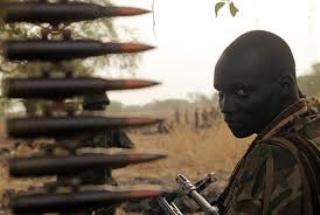S. Sudan Governor: warmongering Sudan attacked Upper Nile agricultural project
August 18, 2012 (RUMBEK) – At least three people were killed and several wounded on 12 and 17 August when the Sudanese army (SAF) twice attacked Renk county of Upper Nile state, according to a government official.

Renk is in the north-east of South Sudan, near the border with Blue Nile, White Nile and Sennar states of Sudan.
Puoc explained that SPLA troops in the area engaged with the “invading forces” after the second attack. He did not clarify whether or not the SAF troops had been repelled or are still occupying the area.
He claimed that the attack was intended to “provoke SPLA to respond so that the two countries return to war.”
Attempts to verify Puoc’s allegations failed. At the time of publishing, Sudan Tribune was unable to reach the SPLA spokesperson.
The minister of information and broadcasting, Barnaba Marial Benjamin, told Sudan Tribune on Saturday that he is aware of the “unfortunate development” but is unable to make any further comment because he is yet to receive an official report from state authorities.
However, Renk county commissioner, Guot Akoi, also alleged an attack took place, telling Sudan Tribune that four tractors were amongst the property destroyed and looted during the attacks. He claimed that SAF had “burned down the whole [agricultural] scheme,” and that one SPLA soldier had been killed along with two civilians.
According to Akoi there was a delay in informing the residents of the danger and mobilising the SPLA troops because the limited mobile phone network coverage in the area means messages have to be hand-delivered.
(ST)
